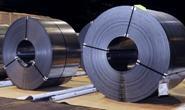Government/Policy

December 5, 2017
CORE, Cold Roll from Vietnam Cited for Circumvention
Written by Sandy Williams
In preliminary rulings today, the U.S. Department of Commerce announced that corrosion-resistant steel (CORE) and certain cold-rolled flat products imported from Vietnam, produced from substrate originating in China, are circumventing existing antidumping and countervailing duty (AD/CVD) orders. As a result, Commerce will instruct Customs and Border Protection (CBP) to begin collecting cash deposits on the Vietnamese imports.
U.S. law provides that Commerce may find circumvention of AD/CVD orders when merchandise that is the same class or kind as merchandise subject to existing orders is completed or assembled in a third country prior to importation into the United States.
CBP will collect AD and CVD cash deposits on imports of CORE produced in Vietnam using Chinese-origin substrate at rates of 199.43 percent and 39.05 percent, respectively. CBP will also collect AD and CVD cash deposits on imports of cold-rolled steel produced in Vietnam using Chinese-origin substrate at rates of 265.79 percent and 256.44 percent, respectively. These cash deposit rates were previously established in the investigations on cold-rolled steel and CORE from China. Duties will apply to all shipments entering the United States on or after Nov. 4, 2016. Importers and exporters of Vietnamese merchandise that is produced from substrate originating in Vietnam or a third country have the option of seeking an exemption from cash deposits by certifying that the substrate originated outside of China.
Shipments of CORE from Vietnam to the United States increased from $2 million to $80 million after preliminary duties were imposed on Chinese products in 2015. Likewise, shipments of cold-rolled steel from Vietnam to the United States increased from $9 million to $215 million after preliminary duties were imposed on Chinese products in 2015.
Commerce is currently scheduled to announce its final determinations in these inquiries on Feb. 16, 2018. These cases were filed by U.S. domestic producers of CORE and cold-rolled steel, including Steel Dynamics, Inc., California Steel Industries, AK Steel Corp., ArcelorMittal USA, Nucor Corp. and United States Steel Corp.







